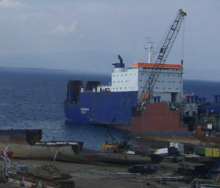The Unemployment Insurance Fund (UIF) has started calling more trucking companies and other employers about paying contributions to the fund and declaring their employees every month.
However, inspections have found that several companies have not been complying with the law.
Mpumalanga’s provincial chief inspector (PCI), Boikie Mampurur, noted with concern how very few truck drivers are registered with the UIF.
This revelation was made more visible by the recent road freight sector operation that took place on the N4 after the Heidelberg toll plaza on 6 April.
“A number of truck drivers we have stopped during this operation indicated that they are not receiving their salary slips hence they are not sure if they are registered for UIF,” said Mampuru in a statement issued by the Department of Employment and Labour.
“Some of the drivers, we viewed their salary slips and we found out that they were not registered.”
He said he finds the lack of compliance by trucking companies in the country concerning, and has stated that his team will be upping their road freight sector operations.
The UIF has spent years encouraging all employers to be 100% compliant with the fund’s legislation, the Unemployment Contributions Act, which states that all employers are required to pay unemployment contributions of 2% of the value of each employee’s pay per month, of which employees contribute 1%.
Mampuru also listed a number of companies that do not comply with Occupational Health and Safety, Employment Standards and UIF, and reported them to these organisations who will do the necessary follow-up.
“This is not the only operation that we will be conducting for this month but there are a number of planned projects over the course of April 2023.”
Mpumalanga’s Member of the Executive Council for Public Works, Roads and Transport, Mandla Ndlovu, ran the road freight sector operation through their Safety Awareness Campaign and invited the National Traffic Police, and Mary Phadi, the President of Truckers Association of South Africa, to assist in inspecting the compliance of the trucks.













